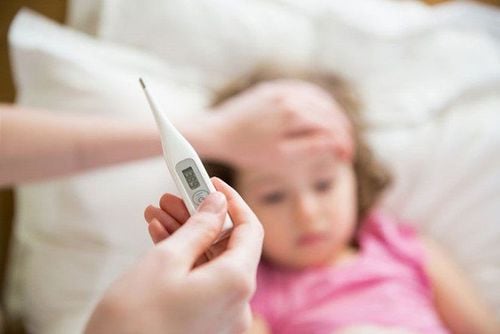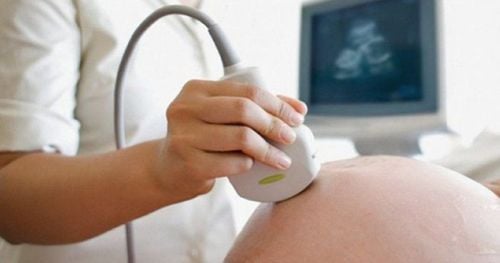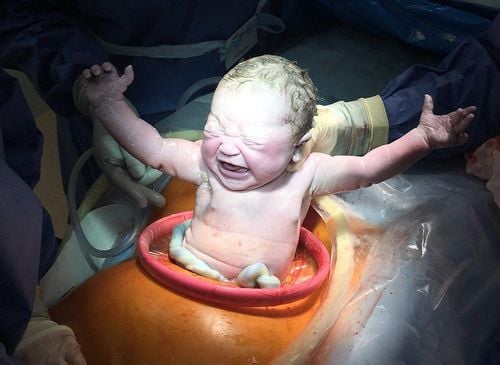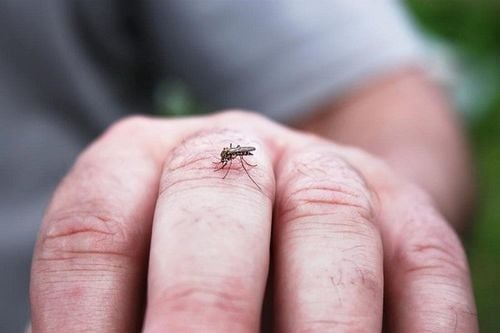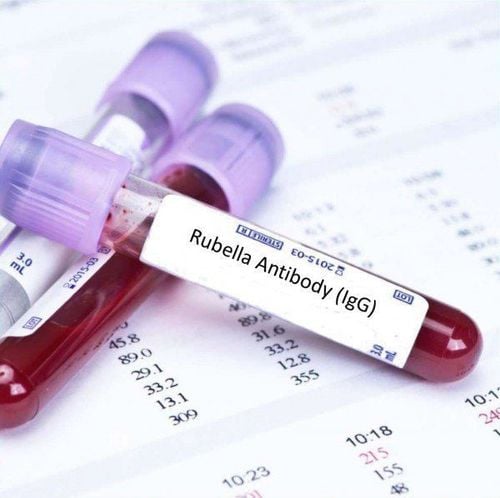Whether dengue fever during pregnancy is dangerous or not depends on the time of infection, it is usually most dangerous in the early stages of pregnancy or in the last weeks before giving birth. Some pregnant women have dengue fever in the last weeks of pregnancy, leading to blood clotting disorders, which are dangerous for both mother and fetus.
1. Dangers of dengue fever for pregnant women and fetuses
Dengue fever during pregnancy can cause many dangerous complications for both mother and fetus. The reason is that when pregnant, the mother's immune system is weakened, creating an opportunity for the virus to develop strongly, from which the pregnant woman has severe dengue fever.
Moreover, this virus can also be transmitted from mother to fetus during pregnancy or birth. Pregnant women may need to have a cesarean section if they unfortunately contract dengue fever during pregnancy. Here are some dangerous complications that can occur during pregnancy and childbirth caused by dengue fever, including:
- Thrombocytopenia: This can be life-threatening for both mother and child. In addition, severe thrombocytopenia can lead to complications when using medical techniques to help pregnant women give birth painlessly during labor;
- Premature birth, low birth weight: Dengue fever during pregnancy, especially in the second and third trimesters, can increase the risk of premature birth, low birth weight, or even death if the pregnant woman is seriously ill;
- Miscarriage: When a pregnant woman has dengue fever in the first trimester, it increases the risk of miscarriage;
- Hemorrhage: If the pregnant woman is infected with the dengue virus during labor, the risk of bleeding is very high;
- Preeclampsia during pregnancy.
The risk of a pregnant woman transmitting dengue fever to her baby only occurs if the pregnant woman becomes ill in the late stages of pregnancy. However, the possibility of the fetus contracting this virus is quite low. To date, the possibility of dengue fever causing birth defects has not been confirmed.
However, you still need to be careful to avoid getting dengue fever during pregnancy, which can spread to your newborn. Your newborn baby will be immediately checked for typical symptoms such as high fever, skin rash and low platelet count in case you get dengue fever near the time of birth.
2. Signs of dengue fever during pregnancy
If you notice the following flu-like symptoms, pregnant women need to go to the hospital for immediate examination, because they are very likely signs of dengue fever:
- Bleeding gums;
- High fever, accompanied by shivering;
- Dehydration, loss of appetite;
- Severe headache;
- Difficulty breathing;
- Feeling numb all over the body;
- Nausea, vomiting continuously;
- Red rashes on the upper body.

3. Treatment of dengue fever during pregnancy
Whether dengue fever is dangerous or not depends on whether the pregnant woman is diagnosed with the disease early or not. If diagnosed early, the treatment will certainly be very effective. Timely treatment of dengue fever during pregnancy will ensure the health of the mother and baby. Pregnant women should note the following when treating dengue fever:
- Do not buy medicine to use during pregnancy without a doctor's prescription
- Have regular check-ups to monitor blood pressure and platelet levels
- In case of mild and moderate dengue fever, you can treat yourself at home with paracetamol to reduce fever and relieve pain.
- You should drink plenty of water to prevent dehydration due to vomiting, avoiding affecting the amount of fetal fluid.
- Keep your mind relaxed, rest a lot, and exercise moderately
- In case of severe and serious dengue fever, pregnant women need to be hospitalized and monitored continuously in the intensive care room
Trắc nghiệm: Bạn có hiểu đúng về dấu hiệu mang thai sớm?
Các dấu hiệu mang thai sớm không phải chỉ mỗi trễ kinh mà còn có rất nhiều dấu hiệu khác như xuất huyết âm đạo, ngực căng tức,… Điểm xem bạn biết được bao nhiêu dấu hiệu mang thai sớm thông qua bài trắc nghiệm này nhé!
4. Preventing dengue fever during pregnancy
Dengue fever is transmitted by mosquitoes carrying the disease. Therefore, we can prevent dengue fever during pregnancy by preventing the breeding of mosquitoes. You can do the following simple things:
- Use mosquito spray in the areas around your place of residence;
- Stay indoors in the early morning and late afternoon, because the mosquitoes that cause the disease are more active at these times.
- Use mosquito nets when sleeping
- Wear light-colored, long-sleeved clothes
- If possible, turn on the air conditioner in the room, because the cold air will keep mosquitoes away.
- Use curtains, blinds or mosquito nets in the window area, the door of the room, house.
When having dengue fever, pregnant women need to be closely monitored for their condition and receive appropriate medical care to ensure the safety of both the pregnant woman and her baby.
To arrange an appointment, please call HOTLINE or make your reservation directly HERE. You may also download the MyVinmec app to schedule appointments faster and manage your reservations more conveniently.
Reference source: Department of Preventive Medicine, Ministry of Health




